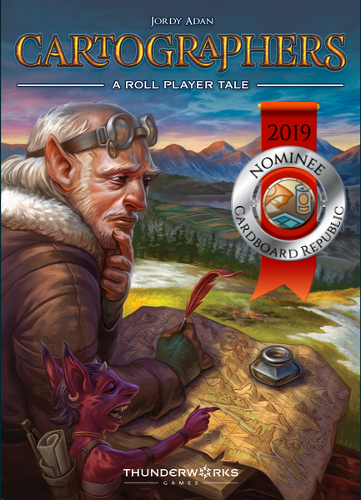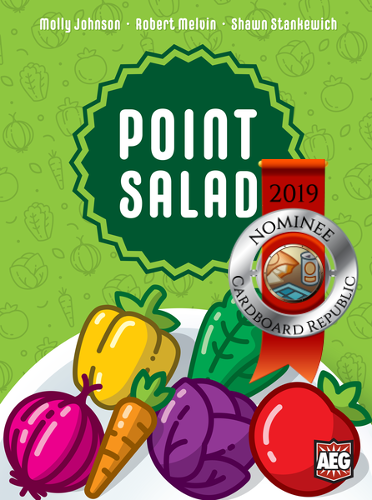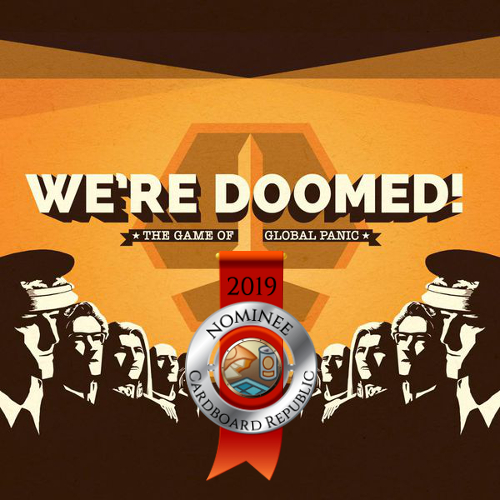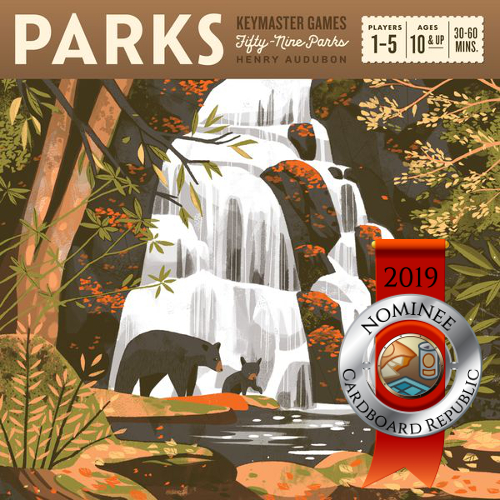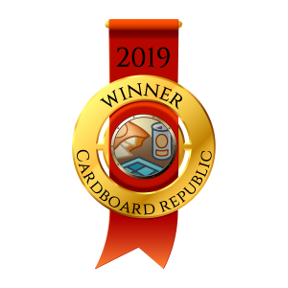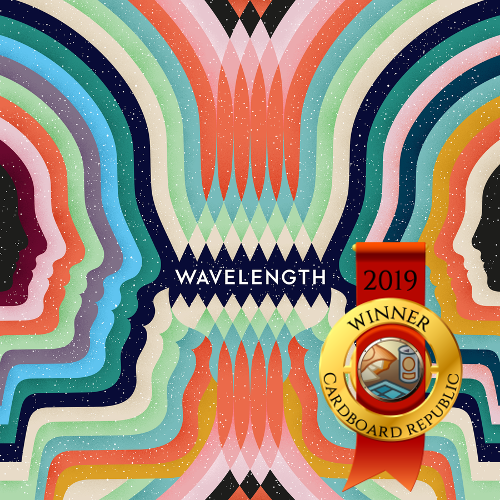The Cardboard Republic has rolled out the annual Laurels of the Republic awards, celebrating the best new games released in 2019 for each of the gamer archetypes. What follows are the finalists for one of those groups.
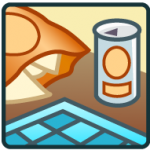 There are few things that Socializers want more out of games than a means to engage with other players as much as possible. If they were a clan, their credo would be ‘Light on Rules, Heavy on Interaction’. Games to this group are less about picking out intricate strategies or figuring out a way to win at any cost than they are about a means to collectively enjoy spending time with other people. As a result, this group prefers games that either have short and simple playthroughs or those that permit them the opportunity to, well, socialize with other players.
There are few things that Socializers want more out of games than a means to engage with other players as much as possible. If they were a clan, their credo would be ‘Light on Rules, Heavy on Interaction’. Games to this group are less about picking out intricate strategies or figuring out a way to win at any cost than they are about a means to collectively enjoy spending time with other people. As a result, this group prefers games that either have short and simple playthroughs or those that permit them the opportunity to, well, socialize with other players.
And with that, here are The 2019 Laurel Finalists for Socializers:
Honorable Mention: Medium
Publisher: Greater Than Games | Players: 2-8 | Play Time: 30-45 Minutes
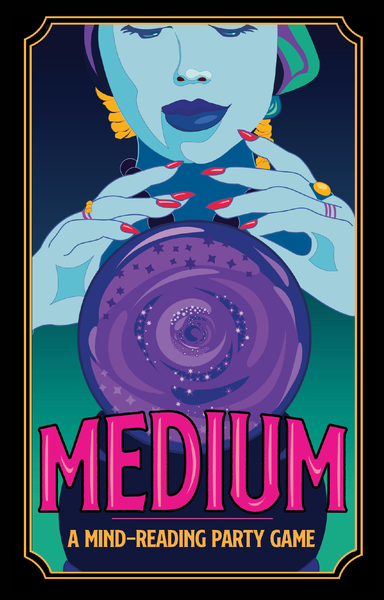
When someone describes a party game involving playing cards with basic words on them, your mind likely goes to That Game. Or That Other Game. Or That One That Isn’t Either Of The First Two And Yet Is Exactly The Same. It can genuinely be difficult to find word games that elicit social frivolity without feeling – or flat out being – derivative of many other well-trodden titles.
Luckily, we don’t actually need a psychic to know that Medium takes a refreshingly different tact while still finding itself in pleasantly familiar space.
In this lightweight social game of word association and teamspeak, Medium is all about trying to think the same way as your teammate. Each player is part of two teams: one consisting of the player to their left, and one with the player to their right. On your turn, simply choose a card with a single word from your hand and play it for your teammate to your left. They then select a card to pair it with. The goal is for both players on the count of 3 to say a word out loud linking them together, with the intent and hope that you both say the same thing. Teams are entitled to three guesses, with each subsequent guess worth fewer points. The additional twist, however, is that subsequent guesses must use the words said out loud instead, either pinpointing your efforts or causing them to veer wildly off course.
When the game ends, the team with the most points declares themselves as the best psychics around. Free palm readings for all!
Despite marginal downtime when it’s not your turn, Medium nevertheless proves an engaging and appealing experience whether it’s as participant or observer. It does reward players who think alike, but Medium’s modest word-exercise-as-a-game premise can be just as satisfying with complete strangers as well. This is because the game’s principal enjoyment is derived from highlighting the interpersonal connections between two people and how two simple words can lead them to arrive at either the same – or ludicrously disparate – conclusions.
With high accessibility, concise turns, and an emphasis on teamwork and understanding one another as a means of victory rather than whoever has the funniest card, Medium provides that entrancing balance between interesting and interactive that draw Socializers in with seemingly otherworldly force.
The Nominees
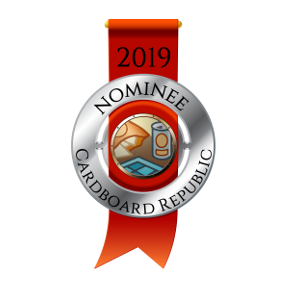
Number Five: Cartographers: A Roll Player Tale
Publisher: Thunderworks Games | Players: 1-Any | Play Time: 30-45 Minutes
Come now – you didn’t think we’d get all this way and not have a pad-and-pencil game to talk about. Roll and write games have become a darling staple for the casual gaming community thanks to their ease of access, short play time, portable nature, and ability to include large numbers of players with minimal effort. 2019 had no shortage to choose from either, with more than two dozen different titles of varying degrees of renown. Yet few reached the level of adoration as did Cartographers. And in this particular case, there was good reason.
Loosely set in the Roll Player universe, Cartographers replaces the genre’s dice elements with a deck of cards and tasks you with journeying to new lands on behalf of the crown to map uncharted territory – solidifying board games as the only arena since being a Renaissance era sea captain where terrestrial mapmaking is considered an enviable profession.
In this game, each player is given a sheet of paper depicting these unspoiled wilds, with the desired intent of trying to efficiently mark up the grid over the course of four seasons. Turns are taken simultaneously by flipping over the top of the deck, which generally depict a combination of one or more terrain types and polyomino shapes. Each turn you must decide to add one of these revealed shapes anywhere on your map and then fill it in using one of the revealed terrains. Placement is free-form and largely unrestricted, though a pair of rotating scoring conditions that trigger at the end of each round ensure that at least some mild planning is required.
The journey continues until, after four rounds, one player has enough points to be crowned this world’s Gerardus Mercator.
Still, although it add some clever new wrinkles to the genre, what makes Cartographers especially appealing to this group isn’t the game itself so much as the ambiance it engenders. With a straightforward premise, casual pacing, and incremental decision-making moments, Cartographers encourages outside conversation while still encouraging a vested interest in the outcome as it leisurely strolls through its paces. To Socializers, there is no better purpose for a game than forging relationships around shared interests, and Cartographers provides an excellent map towards accomplishing precisely that.
Number Four: Point Salad
Publisher: Alderac Entertainment Group | Players: 2-6 | Play Time: 15-30 Minutes
Card games have possessed unique qualities since their very inception. Irrespective of their mechanics or theme, nearly every card game brings with it the same byproduct: fostering contact and leisurely engagement amongst its players. Yet unlike other games that required specific locations, components, or other costs, the portability of card games ensured they could be played practically anywhere at any time, and their affordability made them a viable activity from bawdy sailors to high-scale socialites. This casual and egalitarian feature has become so ubiquitous that we often forget just how useful card games are for interacting with others.
Point Salad is a healthy reminder of those intrinsic qualities.
The cleverly named Point Salad – referencing not only its vegetable based theme but the term used to describe a game whereby nearly every decision you make creates points for you in some way – has been consistently praised since it first appeared on the scene as a finalist in a 2018 design contest. Since then this deceptively simple card drafting tableau game has gathered a cornucopia of acclaim, and with good reason: it’s effortlessly simple, highly replayable, and provides just enough agency where you can make meaningful decisions while still carrying on a conversation outside of the game itself.
The game consists solely of a single deck of cards, divided into three stacks with two cards of each row revealed. The front of each card is one of several garden vegetables, while the back contains a unique scoring condition based around veggies in your tableau. Turns consist of choosing whether to draft two face up vegetables from the board into your tableau or one of the cards off a deck for its scoring potential. Players may flip a scoring card to its veggie side, but once you add them to your salad mix, there’s no going back.
That’s it. Players continue to take turns until the cards are gone, then score based on their chosen point cards and vegetable stockpile.
A point salad indeed.
Point Salad isn’t the most robust or complex card game, true, but its appeal is in part because of its simplicity. Its gameplay is smooth, its accessibility commendable, its pacing optimal. And all while still promoting discourse amongst its players. For Socializers, this game evokes the best qualities that card games have to offer and does so with such delicious efficiency that it’s hard to say no to.
Number Three: We’re Doomed!
Publisher: Breaking Games | Players: 4-10 | Play Time: 15-25 Minutes
It’s not every day you champion a game that actually gets worse the more seriously you play it, but here we are. Because that’s precisely how the semi co-op party game We’re Doomed! behaves. Beneath its retro sci-fi veneer is a game that starts off with the common ‘spot on a life raft’ philosophical quandaries over who you’d save in a survival scenario before completely subverting it…mostly just to see what happens.
The premise of this trip to Armageddon is simple. See, something happened (fill in your own assumptions as to how), and Earth is coming to an end. Representing powerful world leaders, players have a mere 15 minutes in real-time to work together and contribute enough resources to build an escape rocket. The more resources contributed, the more players survive when time runs out. If there aren’t enough seats, players claim available ones (and thereby victory) in order of those with the most influence.
With rapid-fire turns, each round in We’re Doomed! consists of choosing from one of five actions, which mostly boil down to either generating resources or influence, or stealing them from other players. Then everyone has an opportunity to contribute to the rocket, with the player donating the most drawing an event card. Events are flavorful, highly random, and rarely benevolent, often causing changes to the flow of the game ranging from comedic to painful.
If everyone spent the entirety of their efforts producing and contributing resources, you’d always win. Except that almost never happens. Inevitably someone starts working against the greater good once they realize they aren’t making it out. Or they feel slighted. Or myriad other reasons from capricious to whimsical.
Humans are complicated. We’re Doomed! both leans into and satirizes that fact with equal aplomb, providing a concrete goal to strive for while also never taking itself all that seriously. With a madcap pacing, a focus on higher play counts, and a firm 15 minute play time, We’re Doomed! emphasizes navigating a tension-filled mess to see who (if anyone) comes out the other side. For Socializers, this is an excellent if unconventional party game experience that they’ll easily hop on board for.
Provided there’s an open seat, of course.
Number Two: PARKS
Publisher: Keymaster Games | Players: 1-5 | Play Time: 30-60 Minutes
Of all the titles on this list, perhaps the least surprising among them has to be PARKS, the highly (and rightfully) touted lightweight worker placement and set collection game about hiking through the US National Parks. With enough substance to entice hobbyist gamers but straightforward enough for broad-based family appeal, PARKS handily achieved that often elusive goal of appealing to both camps.
In PARKS, each player represents a pair of hikers as they hike across various nature trails, depicted via a randomized set of path tiles arranged linearly. Over the course of four rounds, players will progress down this path visiting different trail locations, collecting keepsake resources, and ideally using those resources to claim National Park cards, which are game’s largest source of points. Timing your optimal movement through these lands can be tricky, however, because players cannot share the same space normally. But like any outdoors enthusiast, with a little forethought, your trusty Campfire, and some purchasable upgrades such as Canteens and Gear, you can increase your odds of a successful hike. Once all of the campers’ journeys are complete, the path is reset, lengthened, and randomized again, ensuring that the choice to make change from round to round.
The end result of all these efforts, beyond the inevitable victor, is a table splay that is as attractive to look at as it to play with.
Even more impressive though is the game’s ability to create an emergent social experience. With its casual sense of progression, stellar production values, and evocative artwork, PARKS very much wants you to enjoy strolling with it through the National Parks system as much as it wants to put forth worthwhile gameplay decisions. And hikes are nothing if not a great catalyst for talking with those walking besides you. Although it’s slightly more involved than a typical Socializer game, the game’s laid-back approach and low-key pacing provides ample room for conversing with your fellow players both within the game and beyond. Which is very much the path this group travels by.
Albeit slightly subtler than some of the other titles here, PARKS was nevertheless an early contender for this year’s Laurel. And it very well may have ended up that way, if not for another title that came along whose approach was anything but subtle…
The Winner
2019 Socializer Laurel – Wavelength
Publisher: Palm Court | Players: 2-12 | Play Time: 30-45 Minutes
If you’ve ever wondered what it’d be like to turn those ridiculous late night discussions or pop culture arguments with your friends into a fully realized board game, then you’re in luck. Because that is, in a nutshell, what Wavelength is all about.
Except, you know, gamified, infectious, and fun.
Despite running a healthy Kickstarter in early 2019 and with co-designers whose pedigrees include popular casual games like Monikers, The Mind, and The Quacks of Quedlinburg, Wavelength didn’t generate the same instant fanfare as several other titles on the list. Instead, its acclaim as an energetic and vibrant team-based party game grew more gradually over the course of the year once the game was delivered and people were able to experience what made the game so alluring firsthand.
In Wavelength, each side takes turns with a player acting as the clue-giver. Doing so is centered around a rotating dial, which serves as the chief mechanism as well as the centerpiece display. On their turn, that player draws and shares a card that lists two ends of a spectrum, such as Hottest to Coldest. Then they must provide a clue to their team that will guide them to the randomly-placed hidden target position on the dial. Clues can be as serious or whimsical as you wish, so long as it fits somehow. It’s up to the rest of the team to confer, discuss, argue, deliberate, and ultimately turn the dial to where they think that target is. The closer to the center of the target you are, the more points your team gets.
The other team, however, doesn’t have to sit by idly. They can attempt to muddy the waters by offering their own countervailing arguments and even bet on whether that guess is misplaced too far one direction or the other for a point of their own.
Wavelength ends once one team reaches 10 points, but as with the best of all such party games, its overall merit and charm resides in the experience more than the final tally. This is a game where you are more likely to remember the conversations than the score. Every turn is chalk full of lively subjective interpretation that offers insightful and humorous glimpses into the inner psyche of the others at the table, which in turn only fosters player engagement further. All in about a half hour.
Wavelength is dynamic, inviting, and infinitely replayable. And while its premise is about getting your team on the same page, there’s a pretty clear understanding here as to why it has earned this archetype’s top spot for 2019.
![]()
Wavelength Contest!
We thought about different ways to celebrate the winner of this year’s Socializer Laurel, including trying to create a massive online gameplay session or trying to form our own ‘man on the street’ style videos to really push the possibilities of entertaining but otherwise unnecessary debate to its logical conclusion. However, for a variety of reasons, neither really worked out. In the case of the latter, it turns out that most people don’t particularly enjoy you randomly barraging them with questions about how hot coffee is or whether toucans count as a normal pet – unless you’re part of some late night TV show. (And no, the lawyers wouldn’t let us lie.)
We were therefore prepared to go with the former…until we sort of realized that debating quasi-pointless things online sort of sums up most of the internet already. And in both cases all we’d seem to be doing is antagonizing the participants more than exciting them – which sort of runs counter to the entire spirit of the this category. In the end we opted for the most direct approach: providing one lucky winner with the opportunity to enjoy the award-winning game first hand. So that is what we’re going to to do right…now.
That’s right! Enter below for your chance at your very own copy of Wavelength!
Note: In honor of their award recognition, Palm Court has kindly provided a copy of this game for giveaway purposes.
![]()
Be sure to check out the 2019 Laurel Award pages for the other archetypes once they go live!

